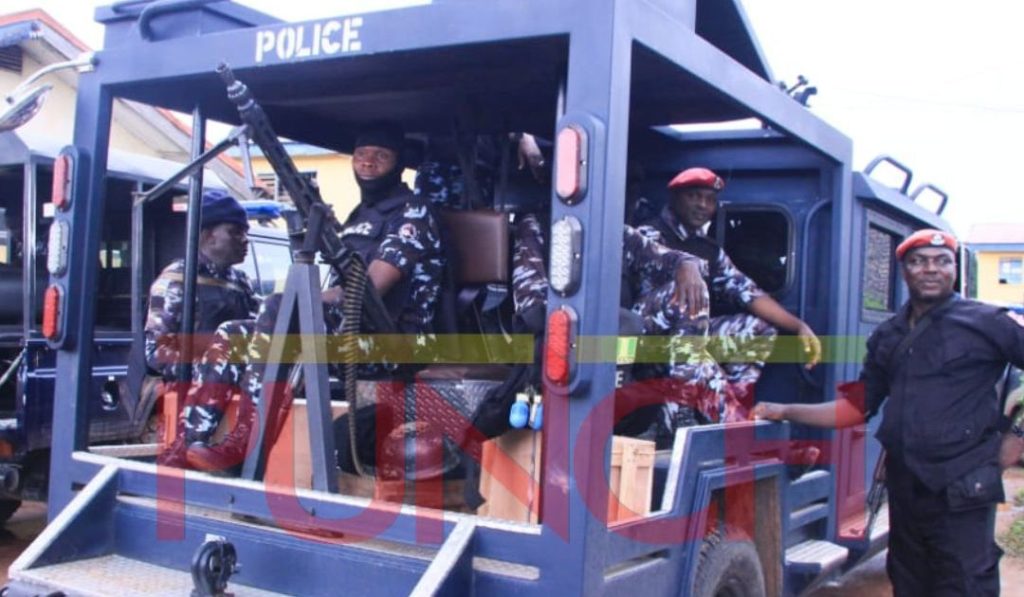On October 2, 2024, a group of protesters gathered at the Gani Fawehinmi Freedom Park in Ojota, Lagos State, to mark the 64th Independence Day of Nigeria. This demonstration aimed to address various socio-political issues affecting the country, drawing attention from both supporters and authorities. The gathering was closely monitored by security forces, including the local police, Lagos Neighbourhood Safety Corps, and Nigeria Security and Civil Defence Corps. However, tensions escalated when certain individuals returned to the protest site the following day, leading to their arrest by the police. The authorities stated that these individuals were not legitimate protesters but rather masqueraders with ulterior motives that could disrupt public peace.
The Lagos State Police, represented by Public Relations Officer Benjamin Hundeyin, confirmed the arrests in a statement released on Friday. The Commissioner of Police, Olanrewaju Ishola, had taken a personal interest in the matter. During a meeting with social activist Omoyele Sowore at the Command Headquarters in Ikeja, CP Ishola expressed a desire to foster goodwill between the police and civil society organizations, ultimately resulting in the decision to release the arrested individuals on bail. This gesture was described as aimed at bolstering trust and improving relations between law enforcement and the community.
Furthermore, Hundeyin indicated that the arrested protesters were immediately handed over to Sowore following the Commissioner’s directive. The police action garnered attention, eliciting reactions from various quarters, particularly those who champion civil rights and accountability in Nigeria. The incident highlighted the challenges faced by individuals and groups attempting to express dissent in a politically charged atmosphere. The release of the protesters on bail reflected a cautious approach by the police, opting to ease tensions rather than prolong grievances through detention.
The arrested individuals were identified as Funmi Robert, Sunday Obasoro, Sikiru Adeagbo, Babatunde Oyeleye, Akin Okunowo, Dare Toyin, Adebayo Shobogun, Michael Adeleke, and Stanley Akonye. While the police accused them of posing as legitimate protesters, there were widespread expressions of solidarity from various groups who viewed their arrests as an infringement on the right to peaceful assembly and free speech. Activists and supporters of civil liberties were particularly vocal, asserting the importance of allowing citizens to peacefully express their discontent and demand accountability from their leaders.
The backdrop of this incident is entrenched in Nigeria’s broader sociopolitical landscape, characterized by a history of protests against government policies, corruption, and insecurity. Civil society organizations have increasingly mobilized citizens to demand better governance and representation. However, the police’s claim that the arrested individuals were seeking to disrupt public order raised concerns about the justification of law enforcement actions in suppressing dissenting voices. The reality of protest in Nigeria is often fraught with risks, prompting many individuals to weigh their motivations against the potential consequences, ranging from arrest to violence.
In conclusion, the eventual release of the protesters on bail signifies a complex interplay between authority and civil liberties in Nigeria. While the police have made an effort to maintain order and address potential unrest, the implications of such arrests on the right to free expression cannot be overlooked. The incident at Gani Fawehinmi Freedom Park serves as a reminder of the ongoing struggle for citizens to engage in societal discourse without fear of retribution. It also underscores the necessity for continuous dialogue between civil society and law enforcement to foster a more democratic environment where the voices of the populace can be heard and respected. The responses from various stakeholders will likely influence future protests and the evolving landscape of civic engagement in Nigeria.


